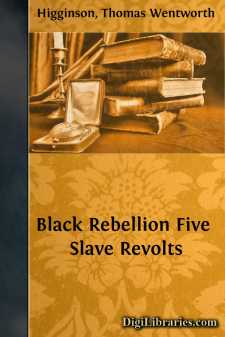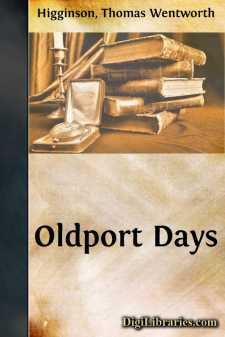Categories
- Antiques & Collectibles 13
- Architecture 36
- Art 48
- Bibles 22
- Biography & Autobiography 813
- Body, Mind & Spirit 142
- Business & Economics 28
- Children's Books 15
- Children's Fiction 12
- Computers 4
- Cooking 94
- Crafts & Hobbies 4
- Drama 346
- Education 46
- Family & Relationships 57
- Fiction 11828
- Games 19
- Gardening 17
- Health & Fitness 34
- History 1377
- House & Home 1
- Humor 147
- Juvenile Fiction 1873
- Juvenile Nonfiction 202
- Language Arts & Disciplines 88
- Law 16
- Literary Collections 686
- Literary Criticism 179
- Mathematics 13
- Medical 41
- Music 40
- Nature 179
- Non-Classifiable 1768
- Performing Arts 7
- Periodicals 1453
- Philosophy 64
- Photography 2
- Poetry 896
- Political Science 203
- Psychology 42
- Reference 154
- Religion 513
- Science 126
- Self-Help 84
- Social Science 81
- Sports & Recreation 34
- Study Aids 3
- Technology & Engineering 59
- Transportation 23
- Travel 463
- True Crime 29
Thomas Wentworth Higginson
Thomas Wentworth Higginson (1823-1911) was an American Unitarian minister, author, and abolitionist known for his fervent advocacy for social reform, including women's rights and the abolition of slavery. He played a significant role in the antislavery movement and commanded the First South Carolina Volunteers, one of the first federally authorized black regiments during the Civil War. Higginson also mentored Emily Dickinson, providing guidance and support for her poetic work.
Author's Books:
Sort by:
Chapter 1. Introductory These pages record some of the adventures of the First South Carolina Volunteers, the first slave regiment mustered into the service of the United States during the late civil war. It was, indeed, the first colored regiment of any kind so mustered, except a portion of the troops raised by Major-General Butler at New Orleans. These scarcely belonged to the same class, however,...
more...
THE MAROONS OF JAMAICA The Maroons! it was a word of peril once; and terror spread along the skirts of the blue mountains of Jamaica when some fresh foray of those unconquered guerrillas swept down from the outlying plantations, startled the Assembly from its order, Gen. Williamson from his billiards, and Lord Balcarres from his diplomatic ease,—endangering, according to the official statement,...
more...
CHAPTER ILONGFELLOW AS A CLASSIC The death of Henry Wadsworth Longfellow made the first breach in that well-known group of poets which adorned Boston and its vicinity so long. The first to go was also the most widely famous. Emerson reached greater depths of thought; Whittier touched the problems of the nation’s life more deeply; Holmes came personally more before the public; Lowell was more...
more...
I. AN ARRIVAL. IT was one of the changing days of our Oldport midsummer. In the morning it had rained in rather a dismal way, and Aunt Jane had said she should put it in her diary. It was a very serious thing for the elements when they got into Aunt Jane's diary. By noon the sun came out as clear and sultry as if there had never been a cloud, the northeast wind died away, the bay was motionless,...
more...
OLDPORT IN WINTER. Our August life rushes by, in Oldport, as if we were all shot from the mouth of a cannon, and were endeavoring to exchange visiting-cards on the way. But in September, when the great hotels are closed, and the bronze dogs that guarded the portals of the Ocean House are collected sadly in the music pavilion, nose to nose; when the last four-in-hand has departed, and a man may drive a...
more...
Preface Hawthorne in his Wonder Book has described the beautiful Greek myths and traditions, but no one has yet made similar use of the wondrous tales that gathered for more than a thousand years about the islands of the Atlantic deep. Although they are a part of the mythical period of American history, these hazy legends were altogether disdained by the earlier historians; indeed, George Bancroft made...
more...
Our true religious life begins when we discover that there is an Inner Light, not infallible but invaluable, which “lighteth every man that cometh into the world.” Then we have something to steer by; and it is chiefly this, and not an anchor, that we need. The human soul, like any other noble vessel, was not built to be anchored, but to sail. An anchorage may, indeed, be at times a temporary need,...
more...
Paris smiled, for an hour or two, in the year 1801, when, amidst Napoleon's mighty projects for remodelling the religion and government of his empire, the ironical satirist, Sylvain Maréchal, thrust in his "Plan for a Law prohibiting the Alphabet to Women."[1] Daring, keen, sarcastic, learned, the little tract retains to-day so much of its pungency, that we can hardly wonder at the honest...
more...









